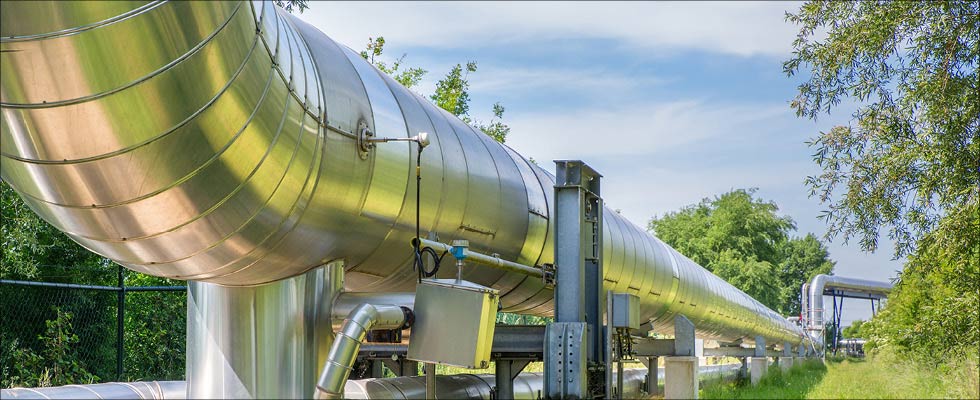
Efforts by startup companies seeking to produce bio-LPG (liquefied petroleum gas) in the United States face significant hurdles toward larger acceptance in a market that is overly saturated with conventional supply.
Any efforts to market bio-LPG — essentially propane produced through renewable means, such as off-gasses from dairy farming or from the biofuels production process — must coincide with regulatory incentives or emissions credits that would make it more affordable relative to conventional propane.
The U.S. is the world’s largest exporter of propane, mostly due to its abundant shale reserves and well-established natural gas industry. U.S. propane production from natural gas processing averaged 1.98 million barrels per day (b/d) during the first nine months of 2023, according to the U.S. Energy Information Administration. The U.S. currently produces far more propane than it can consume as a petrochemical feedstock or as a heating fuel, leaving U.S. distributors fighting for additional market share in the heating and autogas sectors at a time when most municipalities are turning toward electrification of these markets to reduce their carbon footprint.
This doesn’t mean there haven’t been wins along the way, though. Alternative fuel credits for propane-fueled vehicles have been made available as part of the Biden Administration’s 2022 Inflation Reduction Act and the propane industry has succeeded in garnering alternative fuel tax credits for propane autogas vehicles until Dec. 31, 2024. The alternative fuel credit allows consumers to claim about 37 cents for every gallon of propane purchased.
The law also extended credits of up to 6%, or $100,000, toward the cost of retrofitting vehicles to autogas, including forklifts. Yet, investments in renewable LPG will be required to ensure autogas remains in the U.S. vehicle fuel mix, proponents say.
In 2023, U.S. retailer Suburban Propane began delivering propane and renewable dimethyl ether in a 4% blend for use in forklifts under its 38% stake in renewable DME producer Oberon Fuels. Through its use of a variety of organic waste feedstocks, California-based Oberon estimates its renewable DME can deliver a -278 carbon intensity rating as measured by the California Air Resources Board. When blended in a 20:80 ratio with regular propane, it measures a carbon intensity of only 35, according to the company, versus a rating of 83 for propane alone. Oberon’s California plant can produce 1.5 million gallons of renewable DME (98 b/d) annually.
Yet, due to the sheer size of the U.S. propane industry and the additional costs of renewable DME, the U.S. market is less suited to develop renewable propane in any measurable degree. The outlook is more favorable in Europe, where LPG production is limited and there are more carbon credits to incentivize investments in renewable propane production.
Oberon Fuels has entered into a partnership with Europe’s DCC Energy, which has committed to offtake agreements from planned Oberon renewable DME plants in Europe. At the same time, UGI Corporation, a propane distributor in both Europe and the U.S., has invested more than $500 million in bio-LPG and renewable natural gas (RNG) projects. UGI’s two RNG investments in North Dakota are expected to generate a total 525 million cubic feet annually when they are completed in 2024.
In the U.S., however, the scale of existing pipeline infrastructure, salt dome storage and robust exports for conventional LPG mean that market participants seeking to lower LPG’s carbon footprint will have to work at the wellhead, not the end user.
U.S. midstream operators Enterprise Products Partners and Targa Resources, which operate extensive pipeline and fractionation assets carrying liquids out of the Permian basin into the Gulf coast market, have largely focused their sustainability efforts on reducing upstream carbon emissions rather than in renewable fuels.
Houston-based Enterprise noted in its 2023 sustainability report that while carbon dioxide emissions from its larger operations have grown 29% since 2011, the emissions intensity per barrel has fallen by 26% during the same time frame, largely by installing electrically generated pumps and compressors in its midstream operations. Targa reported it reduced its reportable greenhouse emissions by 42% in 2022 from the prior year, largely using electric gas compressors.
Both Enterprise and Targa continue to evaluate carbon capture projects and other initiatives to reduce emissions along the conventional gas processing supply chain. One such area of interest includes preventing “methane slips” in compressor engines, events that occur when unspent fuel leaks through engines and is vented as exhaust, which is often challenging to identify.
At the same time, bio-LPG produced from biofuels using animal or cooking fats, rather than dairy waste, may create a larger supply of sustainable LPG in the U.S. market. Chevron’s Renewable Energy Group produces renewable propane as a byproduct of other renewable fuels, including renewable diesel, gasoline and ethanol at its plants in Iowa and other agricultural areas.
The U.S. ethanol market, which is already well-established in terms of infrastructure and distribution, is acknowledged as a potential area of partnership for renewable propane going forward. Last year, UGI executives noted in an industry webinar on the topic that existing biofuels plants may provide a likely framework for renewable LPG in the future.
While the road ahead for renewable propane in the U.S. market might be long and complicated, there are opportunities present, even in today’s market, for renewable propane to establish its place in the larger energy industry. It will require innovation and a willingness to incorporate multiple solutions and production techniques.


